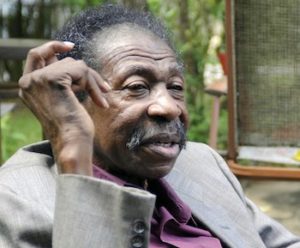
Bruce Boynton
*Bruce Boynton was born on this date in 1937. He was a Black lawyer and civil rights leader.
Bruce Carver Boynton grew up in Selma, Alabama. His parents were civil rights activists, known in their community as Mr. and Mrs. Civil Rights because of their participation. He was named after his Godfather, George Washington Carver.
He graduated from R. B. Hudson High School at fourteen, Fisk University at 18, and Howard University Law School at 21. ln his senior year of law, on December 18, 1958, he ordered a cheeseburger while sitting in a white-only part of a restaurant at a bus station in Richmond, Virginia. He was arrested for trespassing after he refused to leave the restaurant and spent one night in jail. He was a law student at Howard University at the time and decided to fight his arrest in court. At trial, he was represented by Martin A. Martin. He lost his case but decided to appeal until finally, his case reached the U.S. Supreme Court.
His case, known as Boynton v. Virginia, was argued by Thurgood Marshall, who later became a justice of the Supreme Court. The court overturned Boynton's conviction, affirming that racial segregation in public transportation was illegal. Boynton received a law degree from Howard University; however, Alabama refused to give him a law license for six years while they "investigated the circumstances" of Boynton v. Virginia. He was forced to move to Chattanooga, Tennessee, to practice law until Alabama granted him a license in 1965.
Boynton's actions were consistent with other Jim Crow public transportation cases, such as Keys v. Carolina and the earlier 20th century Freedom Rides, where activists rode interstate buses through the Southern United States to protest segregation and voting rights. While the Freedom Riders were arrested in a few southern states, including Alabama, Mississippi, and South Carolina, the actions prompted the then-attorney general Robert Kennedy to pass orders for strict enforcement of the federal anti-discrimination laws. He worked as a civil rights attorney for most of his career until he retired. He served as Alabama's first Black special prosecutor when he prosecuted the Mayor of Beatrice, Alabama, for attacking a black man.
He also worked with his mother, Amelia Boynton Robinson, who was beaten during demonstrations for voting rights episodes like the Bloody Sunday march of 1965. In 2010, 50 years later was honored by then-President Barack Obama. In 2018 U.S. District Judge Myron Thompson said of Boynton: "He did something that very few people would have the courage to do. He said no. To me, he's on par with Rosa Parks," "All he wanted was a cheeseburger, and he changed the course of history."
In 2018, Phillip McCallum, executive director of the Alabama State Bar, apologized for the delay in granting Boynton's license. Bruce Boynton died on November 24, 2020, at 83, two weeks before the 60th anniversary of his landmark case. Former Alabama State Senator Henry Sanders announced his death. His daughter Carver Ann Boynton said the cause was cancer.